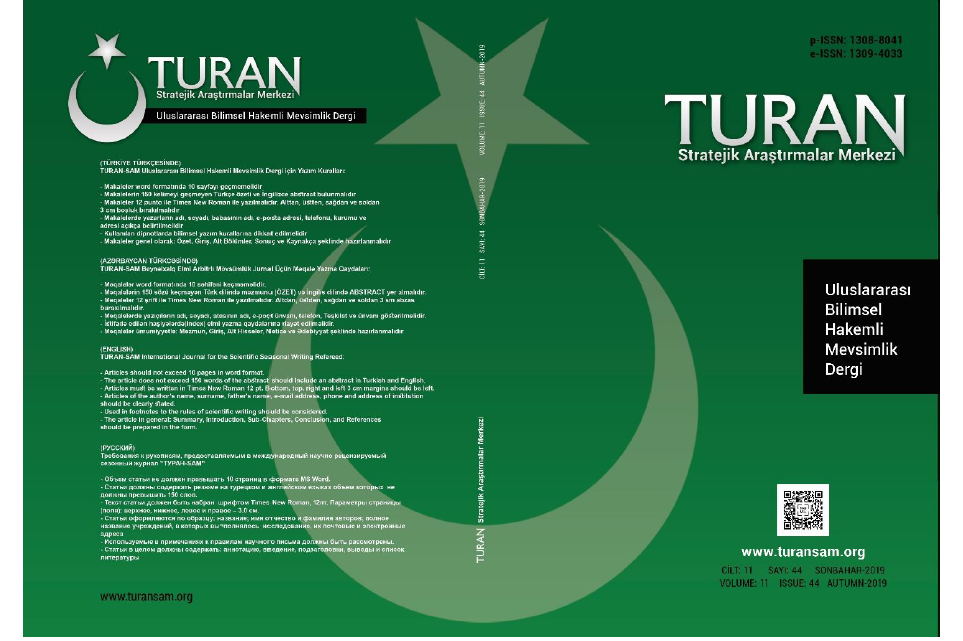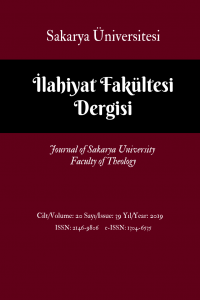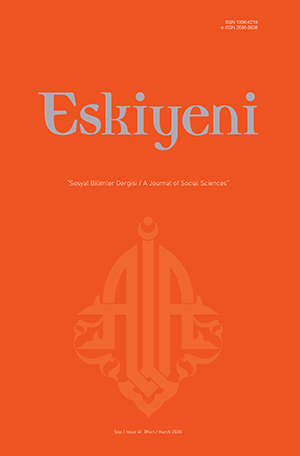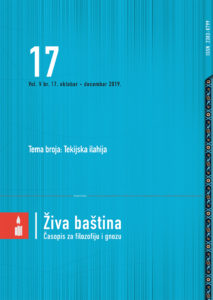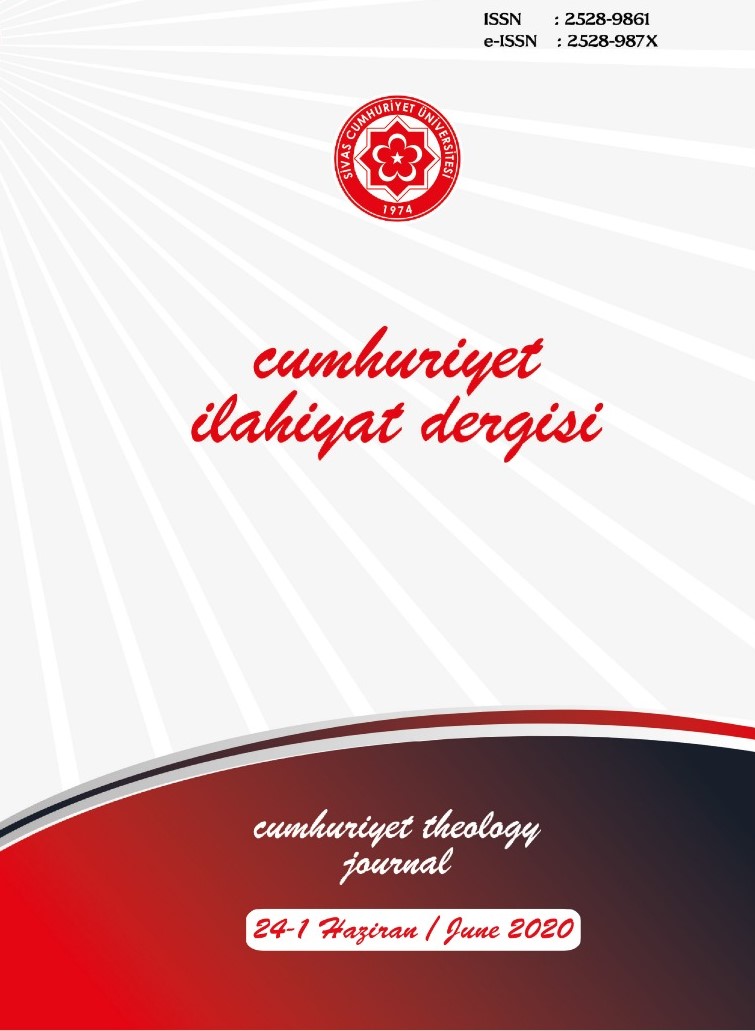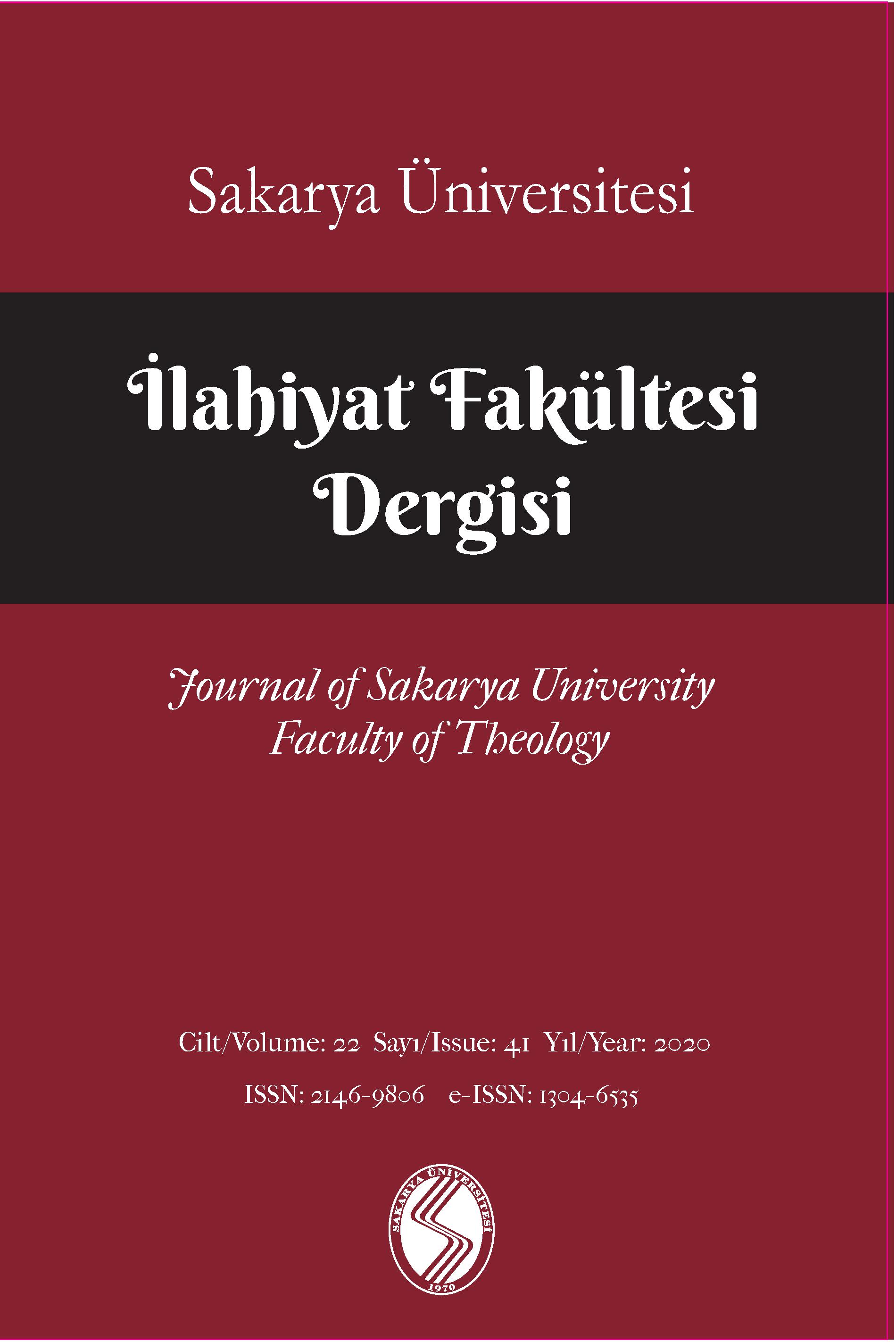Author(s): Seyithan Can / Language(s): Turkish
Issue: 40/2020
Religion is a collection of facts that shapes human life around a certain belief system. Like all the other religons, Islam aims to provide a lifestyle to guide its believers’ life. This lifestyle covers the whole relationship of the believer between the non-believer and his environment. However, even though man interacts with the environment, his relationship with other humans has a priority both individually and socially. At this point, Islam introduced certain principles to determine the relationship of believers with the other. One of the most important of these principles is “al-amr bi-l-ma‘rūf wa-l-nahy ‘an al-munkar (commanding right and forbidding wrong)”.Although the concept of “amr” (command) is accepted with the meaning of “ requesting or ordering”, the first meaning of the concept is action or event. Therefore, in order to fully express the concept of “amr”, both meanings must be considered together. In this context, the concept of “amr” is to display behaviors for everything that is good, including what one says, invites and defends. The concept of “ma‘rūf” (commonly known or acknowledged), which is mentioned in the principle, is everything that reason and shariah consider good in general terms. The concept of “nahy” (forbid) is used as the opposite of “amr”. In this sense, the person's avoiding a bad action is to keep it away by using the means, equipment and facilities. The concept of “munkar” (mostly denied) is used as the opposite of “ma‘rūf”. Taken in this context, it means what the mind considers shameful and rejects it.It is seen that these concepts are used in a sense close to their glossary meaning in The Qur’ān. Such that, the concept of “ma‘rūf” has been expressed as the acceptance or rejection of many attitudes and behaviors by reason that humans exhibit, and it includes many socio-moral and humanitarian issues such as infaq (spending) and helping that concern society closely. Nothing has not been assigned for the concept of “munkar” in terms of its semantic context and it has been accepted as the opposite of “ma‘rūf”. Thus, all of the behaviors corrupting the society such as an oppression and injustice can be described as “munkar”. The fact that the principle is presented in The Qur’ān in the form of an order has led to the idea that its implementation is obligatory (farḍ). While some of the scholars think this farḍ as the obligation of the seIf (farḍ al-‘ayn), some of them emphasize it as the obligation of sufficiency (farḍ al-kifāyah). The difference between these two farḍ is that the fırst obligatory in farḍ al-‘ayn is on all believers, whereas the second obligatory in farḍ al-kifāyah is on a certain group.Although there is a unity among the sects in consideration of the principle as a farḍ, there have been different approaches in terms of its application. Because the socio-political chaos that emerged in the Islamic world in the first period brought with it a problem of legitimacy. Therefo-re, every sect has used the principle of “al-amr bi-l-ma‘rūf wa-l-nahy ‘an al-munkar” in order to base the truth of its own opinion. In this respect, the principle has been used as a tool for many political and ideological purposes in the historical process.It is understood that in the historical process, this principle gained different meanings in the context of political, ideological and denominational presuppositions. Khārijites have accepted the principle of “al-amr bi-l-ma‘rūf wa-l-nahy ‘an al-munkar” as an indispensable duty of all Muslims, especially the Imam. Their method of applying the principle has been shaped on warfa-re, so the principle has created the legitimacy basis of violence for them. The “al-amr bi-l-ma‘rūf wa-l-nahy ‘an al-munkar” principle is one of the five basic principles of Mu‘tazila, one of the first theological schools. Despite the fact that Mu‘tazila initially tackled this principle mo-rally, the socio-political disorders that emerged in the Islamic society paved the way for the ideological and political use of the principle.As a result of Khārijites’ execution (isti’radh) mentality and inquisition movement (mihna) in Mu‘tazila, Ahl al-Sunna scholars have adopted the view that the principle of “al-amr bi-l-ma‘rūf wa-l-nahy ‘an al-munkar” is more of a heart condition than an operational situation in the form of a passive opposition. This principle, which has acquired important goals in terms of ensuring the unity and solidarity of the society, has lost its functionality in terms of its target in the Islamic society over time. In order for Islam to maintain its universality claim today, this principle should be handled with a structure that touches the life of today’s humans. So especially the personal factors and individual differences should be considered. Since there are many factors for the occurrence of humans’s behaviors. One of them is the psychological factors. In this regard, the psychological structure specific to humans’s behaviors should be considered to observe and adjudicate on them. One of the important issues to be considered in the practice of principle is the mutual respect. The res-pect is to accept that the person is free in his or her ideas, feelings and actions. Another important factors for the functionality of this principle is that the person puts himself/herself into someo-ne’s shoes and considers the events through his/her eyes. In this point, an important method to be applied is “I-language”. “I language” is to convey the feelings and views related to a subject without humiliating the opposite person and accusing him/her. Humans should behave uninhi-bitedly, be honest and truthful when applying the “al-amr bi-l-ma‘rūf wa-l-nahy ‘an al-munkar” principle. In particular, an important issue to be considered is that the individual does not act and looks as he/she is. The person should be credible, the content of the message should be clear, care should be taken not to carry different intentions and purposes. Moreover, the individual should be consistent in his/her statements and actions. Since the man is in tendency of believing to what he/she sees rather than what he/she hears. The concepts that these values are told should be practised according to The Qur’ān’s perceptive. Consequently, many issues should be taken into consideration in order for the principle to become functional in today's world, and discour-ses and actions should be developed to meet the needs and expectations of humans. A method should be developed in the context of the values that religion has foreseen especially for all socie-ties and only these values should be explained and applied. The concepts in which these values are explained should also be practiced according to the understanding of The Qur’ān.
More...
